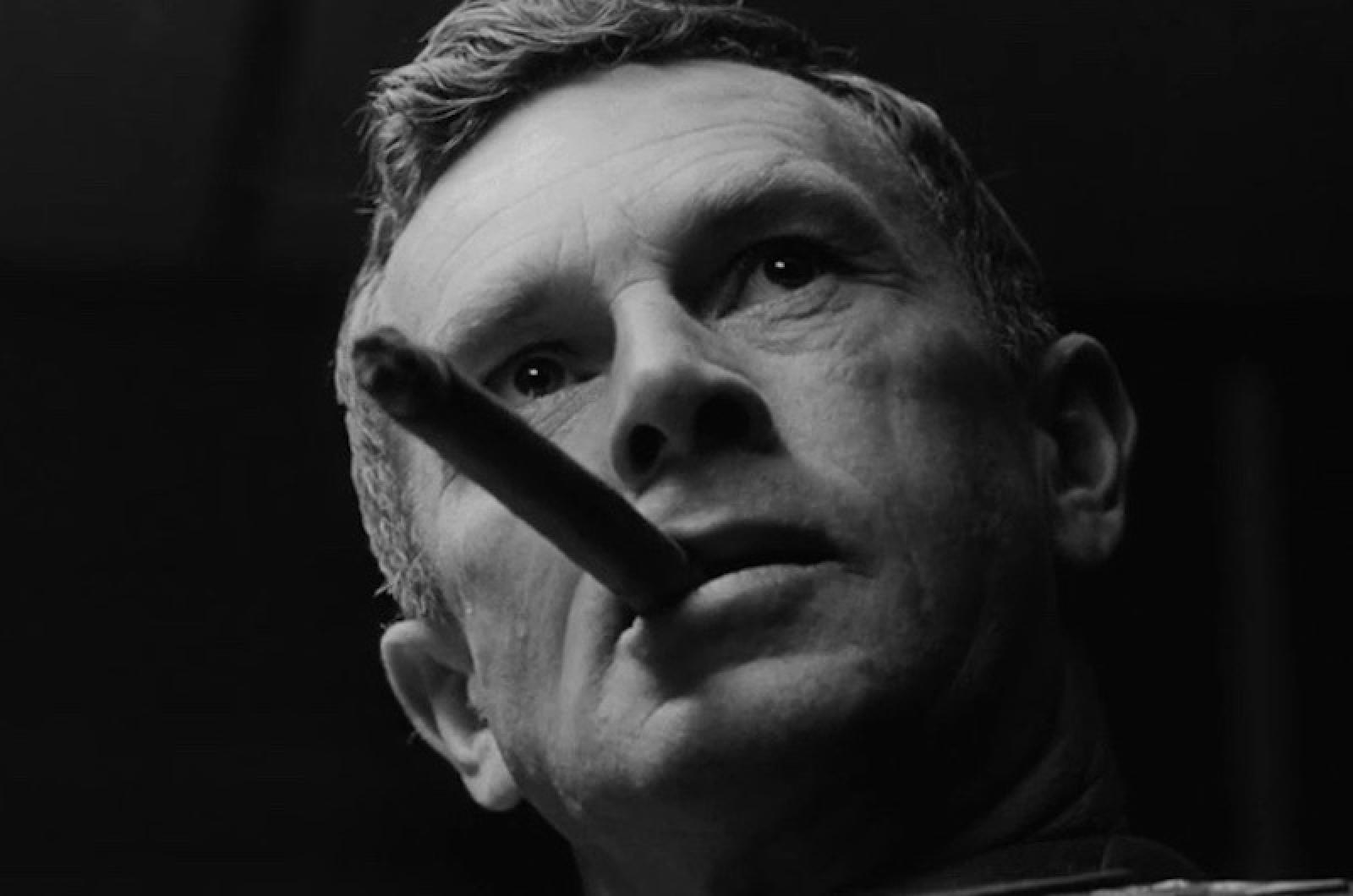Recently I had what our local hospital staff calls a “twofer” — an endoscopy and a colonoscopy in the same visit. Like the anatomical equivalent of building the Union Pacific railroad. To get my mind off food over a two-day prep of fasting, I found myself thinking of what I’d have to call the fast of fasts in my limited experience. It’s as vivid today as it was then.
I was working on Hollywood On Trial, the documentary on the movie industry blacklist in the 1950s. During that dark period, actor Sterling Hayden was a special case. He was certainly a special case when I first met him one afternoon in 1975 at New York’s Algonquin Hotel restaurant.
An aging giant of a man (6’5”, age 59), he strode in with the nimble use of a shillelagh and announced he was about to come off a 38-day fast. He resembled a wild-eyed principled innocent out to right a wrong. He ordered corned beef hash, a beer and a Cointreau. To my astonishment, he started by pouring his drinks on his entrée and stirring. It resembled a deforested atoll. Then he wolfed the whole thing down. I was seriously sitting opposite the deranged General Jack D. Ripper from Stanley Kubrick’s Dr. Strangelove.
As that character, he said, “I can no longer sit back and allow Communist infiltration . . . to sap and impurify all of our precious bodily fluids.” That film came out in 1964, after the 14-year blacklist threat had ended. Back in the 1940s and 1950s, Sterling Hayden had a different view of communists, one that would come to haunt him.
His career had just taken off. In 1950 he landed the starring role in John Huston’s film noir, The Asphalt Jungle. Truth be told, he would rather be at sea — where he ventured into adulthood, where he met life head on, where decisions were made in the stars. He had spent many days feeling alive and purposeful aboard a schooner he called Wanderer, which became the title of his outspoken and very readable autobiography. He sailed the South Seas, the West Coast, the East Coast, Nantucket and the Vineyard. To quote Conrad Neumann’s poem, Hayden felt “adrift without the sea.”
Then, like many others in Hollywood, he joined the Communist Party for six months when it was not illegal, when it lured progressives grown frustrated with capitalism and the two main parties’ inability to bring equal rights and equal pay to all. For that six-month side trip, he got lost for years.
When the subpoena came to appear before the House Committee on UnAmerican Activities, he felt torn — to name names of those who had been in the party with him or not to name. If he didn’t cooperate, he could lose his job. Ironically if he did cooperate, he could also lose his job. It all depended on his employer’s level of hypocrisy.
Attorney Martin Gang made his reputation trying to keep movie stars in their jobs. Hayden hired him. Gang sent him to Ernest Philip Cohen, to whom he sent many clients. Cohen, who lacked full qualifications to be a certified psychotherapist, served secretly as an FBI informant. He spent many sessions convincing patients that naming names was good for the psyche as well as the patriotic soul. In describing his analyst, Hayden didn’t name Cohen in Wanderer, but his identity eventually became common knowledge inside the film community. Then in 1975, Hayden mentioned his name to me — in language a la Anthony Scaramucci.
About to testify on April 10, 1951, as yet unaware of Cohen’s subterfuge, he took his advice and opted to follow what Hayden called the new strange way of showing loyalty “down the muddy informer’s trail.” He wrote “the stoolie could gain status in a land of frightened people.”
After his House Committee appearance, his star continued to shine. He made several pictures back to back — Johnny Guitar, Battle Taxi, The Eternal Sea and Kubrick’s The Killing, hailed in much of the country as a man who did his patriotic duty.
But when he discovered the truth about his analyst, he went ballistic. Tormented by gullibility to deception and guilt for naming names. He reacted by going public with a stinging apology for his testimony. This was a Hollywood first. He recanted to anyone who would listen. A wild-eyed principled innocent out to right a wrong.
Twenty years later at the Algonquin he was still tormented. He still held himself in contempt. Even after scoring good reviews for his Godfather role as corrupt police Capt. McCluskey, whom Al Pacino guns down in a restaurant. He couldn’t commit to doing our film. “It twists me up to talk about this.” He agreed to give it more thought and we agreed to meet again.
A few months later, I met him on the other coast aboard an old houseboat in Sausalito’s harbor. His face was the color of anguish. He apologized, said he couldn’t do it, couldn’t tell the story on camera, said it would make him throw up. I pushed. He said he would rather go on another fast. I retreated.
He died at 70 of prostate cancer in 1986. His last acting job was in the 1982 TV miniseries The Blue and the Gray. He fittingly played a wild-eyed principled innocent out to right a wrong. He played John Brown.
Arnie Reisman and his wife, Paula Lyons, regularly appear on the weekly NPR comedy quiz show, Says You! He also writes for the Huffington Post.





Comments
Comment policy »